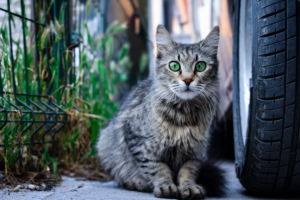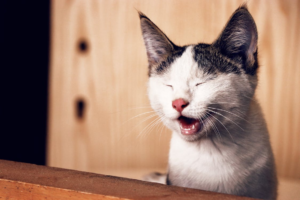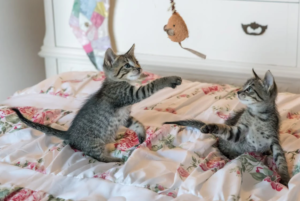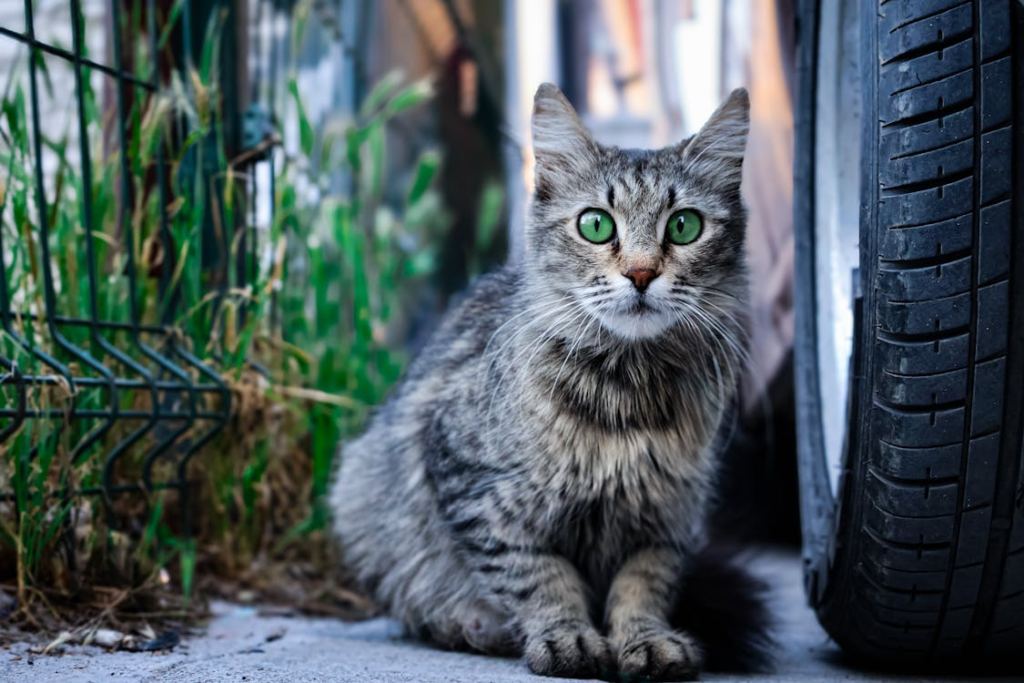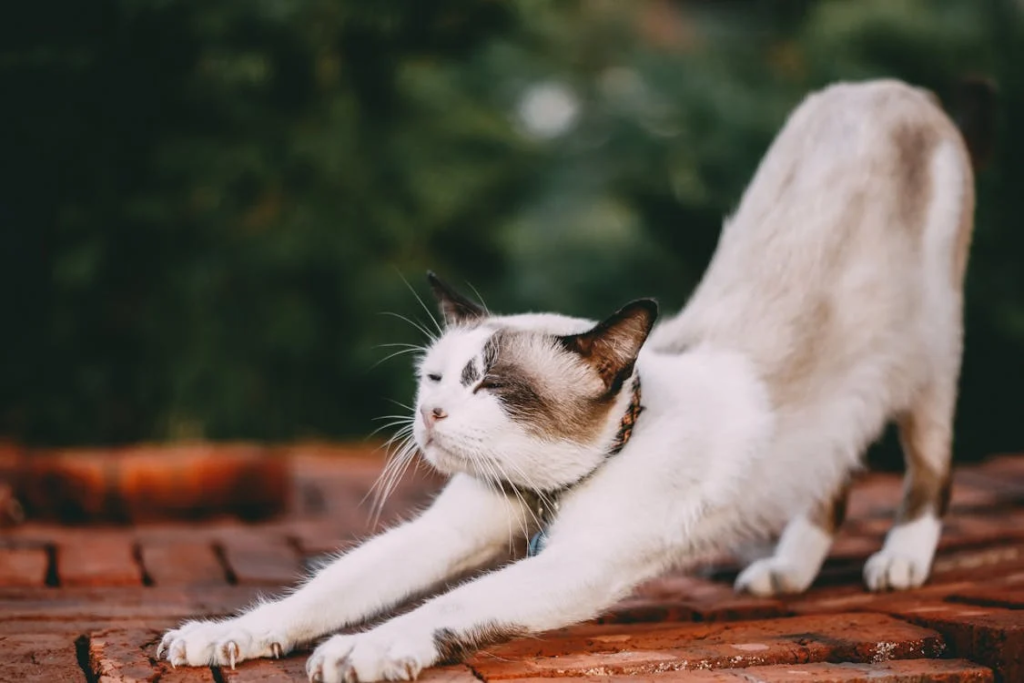Bringing a new kitten into your home is an exciting time, but it can also come with some unexpected challenges. One common issue that many kitten owners face is diarrhea. While it may be unpleasant to deal with, understanding the causes, treatments, and prevention methods for kitten diarrhea can help you keep your furry friend healthy and happy.
Understanding Kitten Diarrhea
Diarrhea in kittens is characterized by loose, watery stools that occur more frequently than normal. It’s essential to recognize that occasional soft stools may not be a cause for immediate concern, but persistent diarrhea can lead to dehydration and other health complications. Knowing when to seek kitten diarrhea treatment is crucial for your pet’s well-being.
Common Causes of Kitten Diarrhea
- Dietary Changes
When you bring a new kitten home, they may experience digestive upset due to a sudden change in diet. Kittens have sensitive stomachs, and abrupt transitions can disrupt their gut flora. - Parasites
Intestinal parasites like roundworms, hookworms, and coccidia are common in kittens and can cause diarrhea. These parasites are often transmitted from the mother cat or through contaminated environments. - Viral Infections
Feline panleukopenia virus (FPV) and feline coronavirus are two viral infections that can cause severe diarrhea in kittens. These infections can be life-threatening if left untreated. - Bacterial Infections
Salmonella, E. coli, and Campylobacter are examples of bacteria that can cause diarrhea in kittens. These infections often result from consuming contaminated food or water. - Food Allergies or Intolerances
Some kittens may have sensitivities to certain ingredients in their food, leading to digestive issues and diarrhea. - Stress
Major changes in a kitten’s environment, such as moving to a new home or introducing new pets, can cause stress-induced diarrhea. - Ingestion of Foreign Objects
Curious kittens may swallow small objects or toxic substances, leading to gastrointestinal distress and diarrhea.
Recognizing the Signs of Kitten Diarrhea
While loose stools are the primary indicator, other signs of diarrhea in kittens include:
- Increased frequency of bowel movements
- Straining or crying while defecating
- Blood or mucus in the stool
- Loss of appetite
- Lethargy or weakness
- Vomiting
- Dehydration (sunken eyes, dry gums, loss of skin elasticity)
When to Seek Veterinary Care
Mild cases of diarrhea may resolve on their own within 24 hours. However, you should consult a veterinarian if:
- Diarrhea persists for more than 24-48 hours
- Your kitten shows signs of dehydration
- There’s blood in the stool
- Your kitten is less than 8 weeks old
- Diarrhea is accompanied by vomiting or fever
- Your kitten appears lethargic or stops eating
In these cases, prompt kitten diarrhea treatment is essential to prevent complications.

Treatment Options for Kitten Diarrhea
The appropriate kitten diarrhea treatment depends on the underlying cause. Here are some common approaches:
- Dietary Management
For mild cases, fasting your kitten for 12-24 hours (with veterinary approval) can help rest the digestive system. Gradually reintroduce a bland diet, such as boiled chicken and rice or a veterinarian-recommended prescription diet. - Hydration
Ensure your kitten has access to fresh water at all times. In severe cases, your vet may administer subcutaneous or intravenous fluids to combat dehydration. - Probiotics
Probiotic supplements can help restore beneficial gut bacteria and improve digestive health. Always consult your vet before giving any supplements to your kitten. - Deworming
If parasites are the culprit, your veterinarian will prescribe appropriate deworming medications. - Antibiotics
For bacterial infections, your vet may prescribe antibiotics. It’s crucial to complete the full course of treatment as directed. - Supportive Care
In severe cases, your kitten may require hospitalization for intensive supportive care, including fluid therapy and nutritional support.
Preventing Kitten Diarrhea
While it’s not always possible to prevent diarrhea, you can take steps to minimize the risk:
- Gradual Diet Transitions
When changing your kitten’s food, do so gradually over 7-10 days, mixing increasing amounts of the new food with the old. - Regular Veterinary Check-ups
Schedule routine check-ups and vaccinations to catch and prevent potential health issues early. - Parasite Prevention
Follow your vet’s recommendations for deworming and flea prevention. - Proper Hygiene
Keep your kitten’s litter box clean and wash your hands after handling your pet to prevent the spread of infections. - Stress Reduction
Create a calm, stable environment for your kitten and introduce changes gradually. - Safe Environment
Kitten-proof your home to prevent access to potentially harmful objects or substances.
Understanding Your Kitten’s Digestive Health
A kitten’s digestive system is still developing, making them more susceptible to gastrointestinal issues. As they grow, their digestive tract becomes more robust, but proper care and attention to their diet remain crucial throughout their lives.
The Importance of Nutrition in Kitten Health
Providing a balanced, age-appropriate diet is essential for your kitten’s overall health and can help prevent digestive issues. Look for high-quality kitten foods that meet AAFCO (Association of American Feed Control Officials) standards for growth and development.
When to Transition to Adult Cat Food
Most kittens can transition to adult cat food around 12 months of age. However, larger breeds may benefit from kitten food for up to 18 months. Consult your veterinarian for personalized advice on when to make the switch.
Long-term Management of Sensitive Stomachs
Some kittens may continue to have sensitive stomachs as they grow into adulthood. In these cases, working closely with your veterinarian to identify trigger foods and develop a tailored diet plan can help manage ongoing digestive issues and reduce the need for frequent kitten diarrhea treatment.
Conclusion
Dealing with kitten diarrhea can be challenging, but with proper understanding and care, most cases can be managed effectively. By recognizing the signs early, seeking veterinary care when necessary, and taking preventive measures, you can help ensure your kitten grows into a healthy, happy cat. Remember, every kitten is unique, so always consult with your veterinarian for personalized advice on your furry friend’s health and well-being.
1: PetMD – Kitten Diarrhea Treatment: What to Give Cats With Diarrhea 2: BluePearl Specialty and Emergency Pet Hospitals – Feline Panleukopenia (Feline Distemper)

